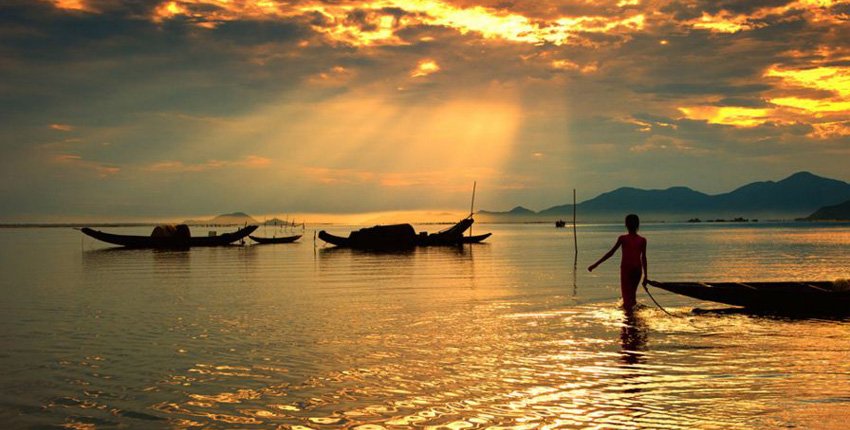
Welcome to Thien Mu Pagoda, a sacred and iconic Buddhist site nestled on the banks of the Perfume River in the historic city of Hue, Vietnam. With its elegant architecture, serene surroundings, and profound spiritual significance, Thien Mu Pagoda has become a symbol of Hue’s cultural heritage. Join us on a travel guide-style exploration of Thien Mu Pagoda as we delve into its rich history, architectural beauty, religious rituals, and the spiritual experiences it offers.
Thien Mu Pagoda, also known as the “Pagoda of the Celestial Lady,” dates back to the early 17th century and holds great historical and religious importance. Built during the reign of Nguyen Hoang, the first lord of the Nguyen Dynasty, the pagoda has witnessed the rise and fall of emperors and played a pivotal role in the region’s spiritual development.
The pagoda’s striking seven-tiered tower, known as the Phuoc Duyen Tower, is a defining feature of Thien Mu Pagoda. Each tier represents a different reincarnation of Buddha, and the tower stands tall as a symbol of spiritual enlightenment. Admire the delicate craftsmanship, intricate carvings, and vibrant colors that adorn the pagoda’s structures, reflecting the rich architectural traditions of Vietnam.
Explore the peaceful grounds of Thien Mu Pagoda, which span across a lush landscape dotted with beautifully landscaped gardens, bonsai trees, and lotus ponds. Take a leisurely stroll along the manicured pathways, breathe in the fragrant scents, and find tranquility amidst the natural beauty that surrounds the pagoda.
Learn about the fascinating legend associated with Thien Mu Pagoda. According to local folklore, an old woman, believed to be an incarnation of the Celestial Lady, appeared on the hill where the pagoda stands today. She foretold the construction of a pagoda that would bring prosperity and tranquility to the region. The fulfillment of her prophecy led to the establishment of Thien Mu Pagoda.
Thien Mu Pagoda remains an active religious site, and visitors have the opportunity to witness and participate in traditional Buddhist rituals and ceremonies. Join the locals as they offer prayers, light incense, and make offerings to the Buddha statues within the pagoda. Experience the serene atmosphere and the melodic chants that fill the air, providing a spiritual and introspective experience.
Enhance your visit to Thien Mu Pagoda by taking a scenic cruise along the Perfume River. Many boat tours allow you to enjoy panoramic views of the pagoda from the water, providing a unique perspective of its grandeur and architectural beauty. The calm waters and picturesque surroundings create a tranquil setting for a memorable journey along the river.
For a truly magical experience, consider visiting Thien Mu Pagoda during sunrise or sunset. The soft golden light casts a mesmerizing glow upon the pagoda, creating a serene and ethereal ambiance. Witness the tranquil beauty of the pagoda against the backdrop of the Perfume River, and capture breathtaking photographs that encapsulate the spiritual essence of Thien Mu Pagoda.
Thien Mu Pagoda stands as a spiritual oasis, inviting visitors to immerse themselves in a realm of tranquillity, architectural splendour, and profound spiritual significance. From its elegant design and serene surroundings to its historical significance and religious rituals, Thien Mu Pagoda offers a unique glimpse into the spiritual heritage of Hue. Embrace the peaceful ambiance, witness the devotion of the locals, and allow the celestial beauty of Thien Mu Pagoda to touch your soul as you embark on a memorable journey through this sacred Buddhist site.
Subscribe to see secret deals prices drop the moment you sign up!
